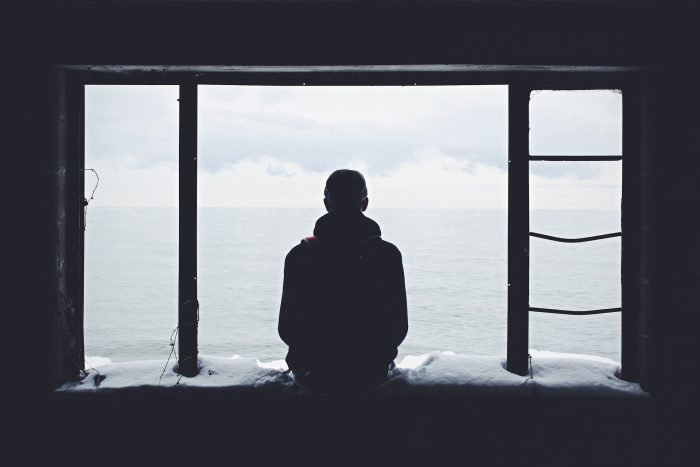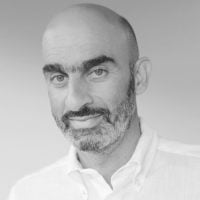“But we cannot live the afternoon of life according to the program of life’s morning, for what was great in the morning will be little at evening and what in the morning was true, at evening will have become a lie.”~ Carl Gustav Jung
~
A few months before my 40th birthday, I started experiencing acute chest pains and difficulty breathing at random times.
I travelled thousands of miles to see a doctor in Lebanon.
“Your problems have nothing to do with your heart but instead with your head,” the heart specialist told me.
It turned out that I had panic attacks after a stressful past 12-18 months. So when my business faced bankruptcy, coupled with the near-fatal accident with my nephew, my body, through panic attacks, started to ask questions. I became anxious, ambivalent, and depressed.
Unbeknownst to me, it was also the start of my Midlife Crisis. (Or the start of my self-discovery journey as I now know it to be.)
During that trip to Lebanon, I bought and read Leo Tolstoy’s The Death of Ivan Illich. Tolstoy described the protagonist, Ivan, as a middle-aged lawyer who lived a life of mediocrity devoid of many emotions, busy trying to earn the esteem of the people in his circle. As a sudden illness struck him, he lay dying and reflected on his mortality.
Like those around him, he had always considered death something that happened to others. But now, for the first time, he was becoming conscious. Had he lived his life wrongly or as others expected him to? Had he lived for the so-called benefits that society brings—honours, wealth, and a modicum of pleasure? Why had he failed to realize that this was his life, one that he must self-author?
As his death beckoned, he became more content, realizing that his previous attempt to rebel against his artificial and superficial life (and those around him) was, in fact, the proper way of living—to live with more meaning. He then smiled and died.
Ivan’s final thoughts tremendously affected me, and I asked myself that simple question: “What if I was living my life all wrong?”
What if living authentically didn’t mean worrying about what people thought of my life, nor what I thought was right under my conditioned beliefs, but instead, through what my heart thought was true? The book and Tolstoy’s words have never left me since that day.
On my last night in Lebanon, I sat on the hotel balcony watching the lovely full moon, facing a striking breeze. The moon shone brightly, reflecting its light on the mirror-like deep blue waters of the sea. It was a surreal moment that many poets and authors had spent hours detailing.
It felt like it was a gift from the Gods, as if they were sending me back home with an insight into what profound grace could look like. Then, without warning, tears started rolling down my cheeks, and I didn’t know why, but it felt good, almost purifying, to cry.
I’d viscerally felt Ivan Illich’s plight as if he were me and as if Tolstoy were describing my life under different circumstances.
Now, I wanted to change the direction of my life to discover the real authentic me.
That’s how my self-discovery journey started. But, of course, it wouldn’t have if it weren’t for that period of personal crisis.
What is a Midlife Crisis?
This is when people experience psychological and emotional distress that could lead to existential angst, usually in their 40s and 50s. We question the choices we’ve made in our lives, our beliefs, values, and identity, and seek to make some changes.
Often, it is triggered by a significant life event, like divorce, the death of a loved one, or losing a job. When the business I’d built over 15 years faced bankruptcy, after steadying the ship, I started having panic attacks.
Not everyone goes through this period of questioning, and not all of us experience it the same way. However, a midlife crisis has been a subject of debate between many psychologists and thinkers for almost a hundred years now.
Carl Jung, the famous Swiss psychiatrist and psychoanalyst, is often associated with the concept of the midlife crisis. Jung believed that as people move through the different stages of life, they experience a series of psychological transformations that he called Individuation.
More recently, Jonathan Rauch, an American author and journalist, has written extensively on the midlife crisis. He said this period is a real phenomenon caused by a dip in happiness and well-being in middle age. It is not simply a result of external factors such as a career setback or a divorce.
Instead, it is a biological and psychological process that affects many people in middle age, regardless of their external circumstances.
Rauch argues that the midlife crisis is caused by changes in the brain and body that occur during middle age. As people enter their 40s and 50s, they experience a decline in certain hormones and neurotransmitters, which can lead to a dip in mood, energy, and motivation.
At the same time, people in middle age are often confronted with the realization that their lives may be more than halfway over. As a result, they may feel a sense of regret or disappointment about unfulfilled dreams or missed opportunities. This can lead to questioning and reevaluation as people try to figure out what they want to do with the remaining years of their life.
We often portray a midlife crisis as negative, like when a balding man buys a fast red Ferrari and starts chasing young, beautiful women but still finds no peace at the end of his adventure. However, it is not always so.
The crisis and self-discovery journey I went through shortly after my 40th birthday was difficult, painful, and long. However, it was also the most intense and awakening period of my life.
By facing my fears and insecurities, I reevaluated my goals and priorities. I found more meaning and a greater sense of purpose in my life. From the midlife crisis, I became more content and peaceful—going inward is the only way to live.
As Donald Richie said, “Midlife crisis begins sometime in your 40s, when you look at your life and think, Is this all? And it ends about 10 years later when you look at your life again and think, Actually, this is pretty good.“
~
Please consider Boosting our authors’ articles in their first week to help them win Elephant’s Ecosystem so they can get paid and write more.


 Share on bsky
Share on bsky





Read 6 comments and reply